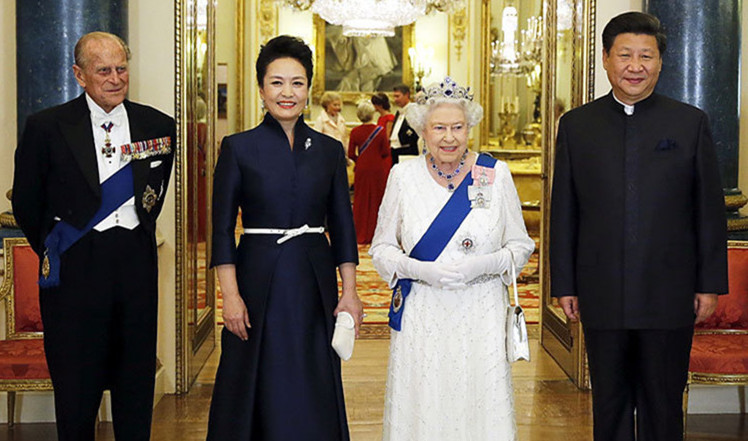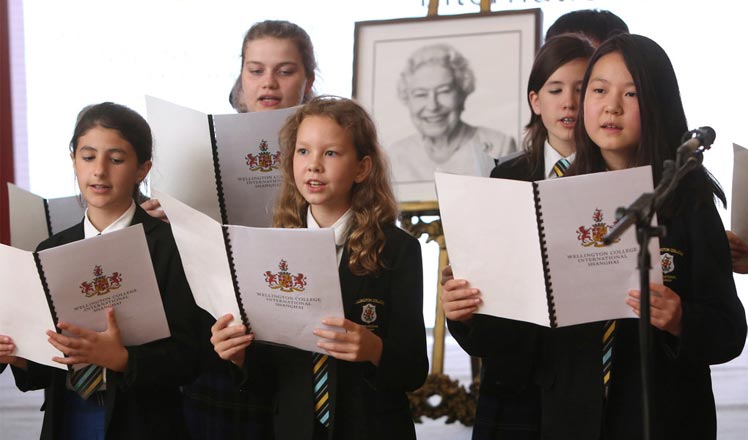Voices of foreigners
Updated: 2015-10-22 08:18
(China Daily)
|
||||||||
In September a group of foreigners, sponsored by the Shanxi Tourism Bureau and China Daily, took a five-day tour to absorb scenes of stunning natural beauty and thousands of years of cultural heritage. The following are impressions from the group members.
Those wondering what Shanxi province has to offer in tourist attractions might consider taking a day trip to the Hukou Waterfall. Forming the natural border between Shaanxi and Shanxi, the great mother river of China, the Yellow River, is a majestic sight and a powerful confluence of energy …
Shanxi has much more to discover than just its capital of Taiyuan and the more frequently traveled routes to its north. With the continuing development of China, one hopes Shanxi will also experience a revival, especially with the national treasures that one day may be recovered from the Taosi relics site of the ancient Yao empire.
Alexander Buchanan, English teacher, USA
There was much to see and many stories to tell. For me, the highlight of the tour was the day we spent in the Old Town of Pingyao, which is listed as a UNESCO World Heritage site and considered to be the best ancient walled city in China. Many tourist guides list Pingyao as one of the best walled cities in the world.
The cobbled streets and many of the buildings date from the Ming and Qing dynasties (1368-1911).
What struck me immediately was just how "alive" much of the old town was. People actually live in these homes. They carry on their daily lives as if living in an ancient home is the most natural thing in the world. Which, for them, it is.
David Kindred, English writing teacher, Canada
We visited many ancient temples and sites that have a history of thousands of years. One of the sites we visited that left me feeling amazed was the Taosi relics site in Linfen. We were told that scientists and researchers just recently, in mid-2015, confirmed that the site was where the Yao emperor founded his kingdom about 5,000 years ago. There were different classes of residential buildings, temples and potterymaking workshops found on the site. The most eye-catching was a structure found and proved to have been used at the time to mark the seasons.
Kok Mun How, visual effects director, Malaysia
There are many Guandi temples both in China and overseas, but the temple in Xiezhou is the finest and most famous. The impressive buildings display beautiful architecture and many ancient statues. The temple was first built by imperial decree in the year 589, during the Sui Dynasty (AD 581-618). The magnificent wooden structures were added to during the Ming Dynasty (1368-1644) and rebuilt in 1807. It is the largest temple of its kind in the world.
Khalid Sharif, company manager, Pakistan
The Hukou Waterfall stands as proof that nature is always supreme in this world. I bowed before the power of Mother Nature. The riverbed beckons all with water droplets thrown off by the rapids and carried on the breeze. The waterfall roars like a fierce lion and there is much to learn and understand. It is a remarkable site along the Yellow River.
The Li family's grand courtyard will never fail to impress. It is a combination of Chinese, Japanese and European architectural styles. This courtyard is not only famous because of its mixture of styles but also for the values attached to the Li family. A belief in giving back to society earned the Li family a treasured reputation among the locals. The family's high humanitarian, cultural and historical values, as seen in this site, are worth emulating.
Maheswaran Ramu, guest service executive, India
Related:
Humble fields belie millennia of history at Taosi relics site

 Royal toast: Queen hosts state banquet for visiting Xi
Royal toast: Queen hosts state banquet for visiting Xi
 Xi and first lady visit British royal collections' Chinese items
Xi and first lady visit British royal collections' Chinese items
 Top 10 highlights in China-UK Year of Cultural Exchange
Top 10 highlights in China-UK Year of Cultural Exchange
 British int'l schools in China
British int'l schools in China
 Top 10 M&A deals between China and UK
Top 10 M&A deals between China and UK
 29 similarities both countries share
29 similarities both countries share
 Deals signed, agreements in pipeline
Deals signed, agreements in pipeline
 'Amazing China' on London's cabs
'Amazing China' on London's cabs
Most Viewed
Editor's Picks

|

|

|

|

|

|
Today's Top News
Tu first Chinese to win Nobel Prize in Medicine
Huntsman says Sino-US relationship needs common goals
Xi pledges $2 billion to help developing countries
Young people from US look forward to Xi's state visit: Survey
US to accept more refugees than planned
Li calls on State-owned firms to tap more global markets
Apple's iOS App Store suffers first major attack
Japan enacts new security laws to overturn postwar pacifism
US Weekly

|

|








